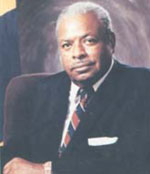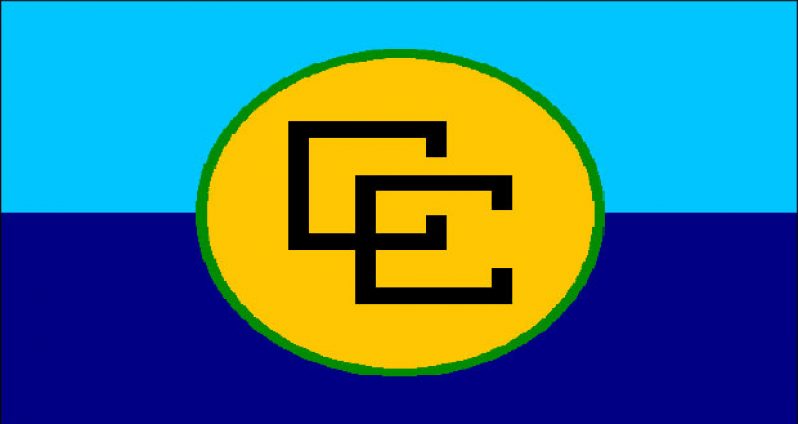—reflections at time of crisis
BARBADIANS WERE yesterday celebrating ‘Errol Barrow Day’ as a national holiday, as they have been doing for the past 25 years. Except that they have never done so in a climate of social and economic gloom and uncertainty about the future as they currently face.
They are still struggling to come to terms with the serious downward slide of a once booming and stable economy, following a pre-Christmas shock disclosure by Finance Minister Chris Sinckler that 3,000 public sector

workers would be retrenched within the first two months of 2014 as a consequence of falling revenues, declining economic investment and the need to adhere to fiscal management guidelines from the International Monetary Fund (IMF).
However, the threats of devaluation of the Barbados dollar—currently 50 cents to the USD–and social instability have not deterred them from enjoying, as best they can, the birthday of their first and most loved Prime Minister and ‘Father of Independence”—Errol Walton Barrow—on January 21, 1920.
He died suddenly at home on June 1,1987, one year after leading his Democratic Labour Party (DLP) back to power at age 66, with a crushing, landslide 24-3 victory against the Barbados Labour Party (BLP).
He was posthumously declared a National Hero the following year and, as from January 21, 1989, his birthday has traditionally been observed with a national holiday.
There has been no divisions over this decision since “the Dipper’, as he is still fondly referred to, has always been respected as a national hero across party lines, in or out of government leadership.
Unique event
Indeed, celebration of Barrow’s birthday with that of a national holiday may be a unique political phenomenon across the Caribbean Community (CARICOM) of which he was among the “founding fathers”.
Having had the opportunity to follow his life in politics both up close and far on my Caribbean beat as a journalist, it was not difficult to recognise Barrow’s inspiring leadership as a unifying force at home and across CARICOM—the regional economic integration that was to blossom from a personal creative initiative undertaken by him.
It was an invitation from him that had led to a meeting in Barbados on July 4, 1965, with then Prime Minister Forbes Burnham to discuss his idea of a free trade area. The proposed initiative later involved then Prime Minister of Antigua and Barbuda, Vere Bird.
The rest is history, for the then mooted Caribbean Free Trade Area (CARIFTA) of three countries was to spread and deepen into a Caribbean Community of a dozen nations by the time of passing of ‘Dipper’ Barrow.
An unwavering regionalist, the Barbadian leader, who also had a close friendship with Jamaica’s Michael Manley, is credited with being as well the primary moving political personality in creation of the Caribbean Development Bank (CDB). Manley’s own commitment to regional unity was assured.
CDB and food imports
With the CDB headquartered in Barbados, Barrow had succeeded, with the essential co-operation of Dr Eric Williams, then Prime Minister of Trinidad and Tobago–himself a very formidable regionalist–in interesting the shift of William Demas—a doyen among Caribbean economist—away from being Secretary General of the Caribbean Community in Guyana to that of President of the CDB, as successor to the departing Professor Sir Arthur Lewis.
Barrow is also recalled for the passion he had shared with Dr Williams to utilise home-based natural resources of countries like Trinidad and Tobago, Guyana and Belize, to break the heavy dependence on foreign food imports that kept draining the outflow of capital badly needed for regional development.
By July 1986, within months of returning to office as Prime Minister, Barrow, in a most inspiring memorable address to a CARICOM Heads of Government Conference in Guyana, was to lament the apparent lack of vision and energy to motivate the deepening of a people-focused regional integration process.
“If we (the Community leaders) have failed to comprehend the essence of the regional integration movement”, he told the conference, “the truth is that thousands of ordinary Caribbean people do, in fact, live that reality every day….
“We are”, he had declared, “a family of islands nestling closely under the shelter of the great Co-operative Republic of Guyana. And this fact of regional togetherness is lived every day by ordinary West Indian men and women in their comings and goings…’
This was the visionary thinking of Errol Barrow, a deeply admired and loved political leader of the Barbadian people, whose birthday has been institutionalised as a national public holiday in the CARICOM partner state currently gripped—hopefully temporarily—in a most serious economic crisis.
(Analysis by Rickey Singh)



.jpg)









